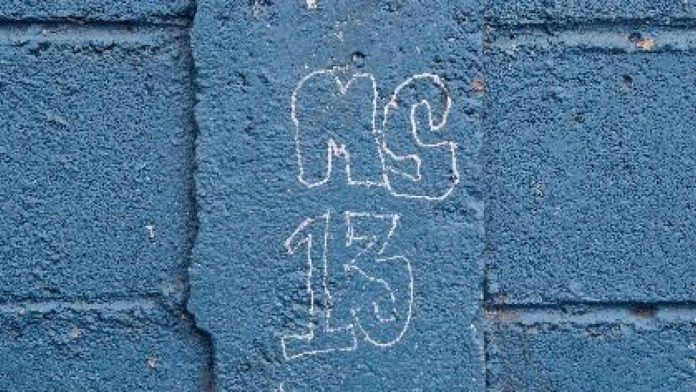Editor’s note: This essay is part of “Stories from the Street,” a Police1 series featuring first-person reflections from officers across the country. These essays are about the lived experiences and moments that changed how officers think, lead and serve. If you have a story to share, we’d love to hear from you. Submit your story here.
Thank you for reading this post, don't forget to follow and signup for notifications!
By Sergeant Calvin Van Scudder
When most young cops first start working gangs, they treat every encounter like a confrontation. They go in ready for a fight instead of ready for a conversation. That’s the first mistake.
It’s not illegal to be in a gang. People have a First Amendment right to associate — that’s the law. What’s illegal is the behavior that comes from that association: the crimes, the conspiracies, the violence. Once you understand that distinction, your approach changes. You stop treating every contact as an adversarial one and start seeing it as an opportunity to gather information that will lead to intelligence.
Building rapport isn’t being soft — it’s being smart. Gang work is about reading people, understanding culture, and recognizing that today’s conversation on the corner might solve tomorrow’s shooting. Every good gang cop knows that the two most valuable pieces of information you can get in a field contact are simple: “Where you from?” and “What do they call you?” Those two questions, asked with respect and consistency, can open up entire intelligence networks.
| RELATED: Inside federal prison’s ‘criminal LinkedIn,’ where punishment turns into opportunity
I’ve never had a homicide, robbery or assault detective walk into my office with anything more than a name and an alias. It usually starts with something like, “We’re looking for a guy named Solo — he’s from Oak Cliff.”
By the time that call comes in, I’ve already had multiple encounters with Solo. I know who he runs with, where he hangs out, what cars he drives and who his girlfriend is. That’s not luck — that’s rapport. That’s information gathered through professional, non-adversarial contact.
Those small, respectful interactions on the street are the backbone of every major case. A quick contact, a casual conversation, or even a simple field interview can build the foundation for actionable intelligence down the road. Every time you document a name, a tattoo, an address or even a nickname, you’re laying concrete that detectives, analysts and prosecutors will later stand on.
“Gang work is a long game. It’s not about one stop or one arrest; it’s about connecting threads over time.”
Too many officers overlook that. They treat gang contacts as throwaway encounters — a quick stop, maybe a warning, and then back in service. But to an investigator, that five-minute contact might be the key that links a gun, a car or a suspect across multiple cases. Intelligence doesn’t come from chance; it comes from consistency.
When you develop rapport, you turn hostility into opportunity. The more you talk to these individuals — professionally, without judgment — the more you learn about how their world operates. And when the next shooting happens, you’ll already have context. You’ll know who’s beefing with who, what corner changed hands and which crews are about to collide.
One of the biggest mistakes I see in gang work is the failure to document encounters that don’t lead to an arrest or an offense report. Too many officers walk away from a conversation thinking, “Nothing happened here.” But in gang investigations, something always happens — information is exchanged, relationships are built, and context is created.
Document the encounter. Every single one. Whether it’s a consensual contact, a street check or a quick conversation in passing — write it up. That information might not matter today, but six months from now, when a detective is staring at a homicide suspect’s nickname, that one field interview could break the case open.
I remember one contact that seemed routine — just a quick talk with a guy outside a corner store. I noted his nickname, his tattoo and the car he got into. Months later, that same car showed up at a drive-by scene. That simple field card gave investigators the thread they needed to connect the suspect crew to multiple shootings.
Gang work is a long game. It’s not about one stop or one arrest; it’s about connecting threads over time. Documentation turns random contacts into usable intelligence. It builds a timeline, a pattern and a story. And when you treat every encounter like it could matter — it usually does.
In order to understand medicine, you have to understand the language of medicine. The same applies to gangs. If you don’t understand the language — the slang, the symbols, the alliances and the rivalries — you’ll miss what’s happening right in front of you.
Gang investigations aren’t just about arrests; they’re about interpretation. The best gang cops don’t just react to violence — they anticipate it, because they understand the people, the culture and the communication driving it.
At the end of the day, gang intelligence work is a team effort. You might never get the call saying your field card solved a homicide, but that doesn’t matter. What matters is knowing that every name, every note, every contact contributes to something bigger — one team, one fight.
About the author
Sergeant Calvin Van Scudder has spent over 16 years with the Dallas (Texas) Police Department specializing in violent crime, gang investigations and proactive enforcement strategies.
He currently supervises the Violent Crime Unit, provides training to law enforcement agencies nationwide, and is the author of “Gangs Uncovered.” He is also the owner and lead instructor of Sentinel Training Group, LLC.
| MORE STORIES FROM THE STREET: The silence after the badge: A sergeant’s blunt truth about retirement



